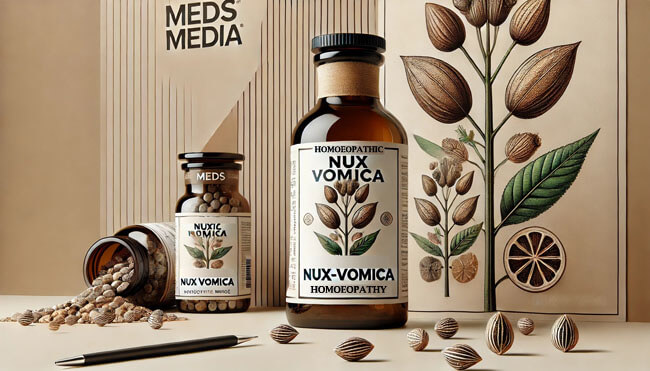Sycosis is one of the chronic miasms identified in homeopathic medicine, introduced by Samuel Hahnemann, the founder of homeopathy. It plays a critical role in understanding and treating chronic conditions that are linked to a history of suppressed infections, particularly gonorrhea. This educational guide explores the concept of Sycosis, its characteristics, associated symptoms, and the homeopathic remedies used to address it.
Origin of Sycosis
Sycosis is closely associated with the suppression of gonorrheal infections, which were historically common and often inadequately treated. According to Hahnemann, when these infections are suppressed or inadequately addressed, they can lead to the development of Sycosis. This miasm is characterized by conditions of excess, growth, and chronic inflammation. The underlying principle is that suppression of such infections can result in a state of chronic illness that manifests in various physical and emotional symptoms.
Characteristics of Sycosis
1. Overgrowths and Excess: Sycosis is primarily associated with overgrowths in the body. This includes:
- Warts: Benign growths on the skin or mucous membranes.
- Cysts: Fluid-filled sacs that can develop in various body tissues.
- Tumors: Abnormal growths that can be benign or malignant.
2. Mucous Membrane Issues: Conditions affecting mucous membranes are common in Sycosis, including:
- Thick, Sticky Discharges: Often seen in respiratory and genitourinary conditions.
- Chronic Inflammation: Persistent inflammation of mucous membranes.
3. Worsening in Damp Weather: Symptoms related to Sycosis often worsen in damp or humid conditions. This environmental factor can exacerbate the chronic inflammation and excess growths associated with this miasm.
Mental and Emotional Symptoms
1. Fixed Ideas: Individuals with Sycosis may experience rigid, obsessive thoughts or fixed ideas that can affect their behavior and decision-making.
2. Compulsive Behavior: There may be tendencies toward compulsive actions or behaviors, driven by the internal mental state associated with Sycosis.
3. Sense of Shame or Guilt: A common emotional symptom is a pervasive sense of shame or guilt, which can influence both mental health and overall well-being.
Physical Symptoms
1. Warts and Cysts: The presence of warts, cysts, and other growths is a hallmark of Sycosis. These can appear on the skin, mucous membranes, or internal organs.
2. Respiratory Issues: Individuals may experience respiratory symptoms characterized by thick, sticky mucus, which can lead to chronic coughs and congestion.
3. Joint Pains: Joint pain and discomfort may be aggravated by damp weather, reflecting the connection between Sycosis and environmental conditions.
List of Sycosis Medicines
Homeopathy offers several remedies specifically aimed at addressing the symptoms of Sycosis. Here is a list of common Sycosis medicines:
- Thuja Occidentalis
- Description: Often used for treating warts, especially those with a moist, sticky discharge. It is also indicated for conditions associated with the suppression of gonorrheal infections.
- Medorrhinum
- Description: This remedy is used for conditions linked to a history of gonorrheal infections and chronic discharge. It addresses symptoms like skin growths, chronic infections, and respiratory issues.
- Antimonium Crudum
- Description: Suitable for warts and conditions worsened by damp weather. It is also used for thick, crusty discharges and digestive complaints.
- Causticum
- Description: Effective for chronic conditions with thick mucus and skin problems. It is also used for conditions involving paralysis and burning pains.
- Nitricum Acidum
- Description: Known for treating conditions with sharp, splinter-like pains, particularly in the mucous membranes. It is also used for ulcers, fissures, and hemorrhoids.
- Graphites
- Description: This remedy is used for skin conditions with thick, sticky secretions and chronic inflammatory issues. It is particularly effective for eczema and psoriasis.
- Silicea
- Description: Used for chronic conditions with weakness and excessive growths. It is beneficial for abscesses, scars, and bone-related issues.
- Baryta Carbonica
- Description: Often prescribed for developmental delays, chronic tonsillitis, swollen glands, and memory issues. It is used for individuals who are physically or mentally underdeveloped.
- Carbo Vegetabilis
- Description: Known as the “corpse reviver,” it is used for individuals who are weak, cold, and in need of physical and emotional revival. It is also used for digestive issues.
- Colocynthis
- Description: Effective for abdominal colic, neuralgia, and conditions involving intense, cramping pains. It is particularly useful when relief is obtained from firm pressure or bending double.
- Lycopodium
- Description: This remedy is used for digestive disorders, such as bloating and gas, and is also beneficial for low self-esteem and anxiety.
- Petroleum
- Description: Indicated for conditions that worsen in cold weather, especially skin conditions like eczema and dermatitis.
- Platina
- Description: Effective for conditions involving pride and superiority, and is used for menstrual complaints, neuralgia, and sensations of constriction.
- Pulsatilla Pratensis
- Description: Commonly used for hormonal imbalances, mood swings, weepiness, and digestive complaints.
- Rhus Toxicodendron
- Description: Known for its action on the joints and skin, used for conditions involving stiffness, rheumatism, and skin eruptions.
- Sarsaparilla
- Description: Used for urinary tract issues, particularly painful urination, and is also effective for skin conditions and joint pain.
- Spigelia Anthelmia
- Description: Indicated for nerve pain, especially facial neuralgia and headaches, and is also used for heart conditions.
- Stramonium
- Description: Used for conditions involving fear, delirium, and violent behavior, particularly those affecting the nervous system.
- Thuja Occidentalis
- Description: Often used for warts, growths, and skin eruptions, and is also indicated for deep-seated chronic infections.
- Zincum Metallicum
- Description: Known for its action on the nervous system, used for restless legs, nerve pain, and conditions involving weakness and exhaustion.
- Agaricus Muscarius
- Description: Known for treating nervous system disorders, including tremors, spasms, and conditions that worsen with cold weather.
- Anacardium Orientale
- Description: Used for conditions involving a split or dual personality, anxiety, depression, and memory issues.
- Clematis Erecta
- Description: Effective for treating skin conditions with itching and burning, and for urogenital complaints.
- Cina Maritima
- Description: Commonly used for children with worm infestations, irritability, and gastrointestinal distress.
- Crocus Sativus
- Description: Used for conditions involving hemorrhage, particularly uterine bleeding, and is also indicated for mood swings.
- Digitalis Purpurea
- Description: Known for its action on the heart, used for slow, irregular pulse and heart failure.
- Dulcamara
- Description: Indicated for conditions worsened by cold and damp weather, including respiratory complaints, skin conditions, and urinary issues.
- Euphrasia Officinalis
- Description: Commonly used for eye conditions, including conjunctivitis, hay fever, and profuse tearing.
- Ferrum Metallicum
- Description: Used for anemia, weakness, and conditions involving flushing and sensitivity to cold, and is indicated for individuals who are easily fatigued.
- Ignatia Amara
- Description: Effective for grief, sadness, and emotional stress, including headaches, insomnia, and digestive issues.
- Lachesis Muta
- Description: Used for circulatory issues and menopausal symptoms, such as hot flashes and varicose veins, and conditions that worsen with sleep.
- Magnesia Muriatica
- Description: Indicated for digestive complaints, particularly liver and gallbladder issues, and menstrual irregularities.
- Magnesia Carbonica
- Description: Used for digestive complaints involving acidity and flatulence, and also for nervousness and menstrual disorders.
- Natrum Muriaticum
- Description: Indicated for emotionally sensitive individuals who suppress their emotions, used for headaches, migraines, and digestive issues.
- Natrum Sulphuricum
- Description: Used for conditions involving excess fluid retention, especially in the liver and kidneys, and is also effective for asthma and depression.
- Psorinum
- Description: A constitutional remedy for individuals with a history of chronic skin conditions, infections, and overall weakness.
- Sabadilla
- Description: Used for hay fever, allergies, and respiratory issues, and is effective for gastrointestinal complaints.
- Staphysagria
- Description: Effective for emotional suppression and trauma, indicated for conditions involving suppressed anger, grief, and urogenital issues.
- Asarum Europaeum
- Description: Used for heightened sensitivity to noise and touch, digestive complaints, vertigo, and cold extremities.
- Colocynthis
- Description: Known for its action on abdominal colic and neuralgia, particularly when relief is obtained from firm pressure or bending double.
How Sycosis Works and Insights
Understanding Sycosis: Sycosis represents a chronic state of imbalance resulting from the suppression of infections. It is characterized by an overgrowth of tissues and chronic inflammation, which can lead to a variety of symptoms. The miasm reflects a deep-seated predisposition to conditions involving excess and chronic issues, particularly affecting the skin, mucous membranes, and joints.
Treatment Approach: The homeopathic treatment for Sycosis involves selecting remedies that target the specific symptoms and underlying causes of the miasm. Treatment aims to address not only the physical manifestations but also the mental and emotional aspects of the condition. Remedies are chosen based on the individual’s overall symptom profile and constitutional state, with the goal of restoring balance and alleviating chronic symptoms.
Insights: Effective management of Sycosis requires a holistic approach, considering both the physical and emotional aspects of the condition. Homeopathic remedies work by stimulating the body’s natural healing processes and addressing the root causes of chronic illnesses. By targeting the underlying miasm, homeopathy aims to promote long-term health and well-being.
Related links for Further Exploration:
Syphilis in Homeopathy
Psora in Homeopathy
Anti-Psoric in Homeopathy
Why Meds Media guides are different
We focus on clear, practical explanations of homeopathic and natural health topics so you can understand remedies, symptoms, and lifestyle changes in simple language.
Meds Media is an educational resource only. Always consult a qualified doctor or homeopathic practitioner before starting, stopping, or changing any treatment.
Similar Posts You may also like

LM Potencies in Homeopathy Explained | Insights from the 6th Edition of the Organon

Homeopathy Medicines for Pregnancy Care

Homeopathic Remedies Derived from the Fungi Kingdom

Homeopathic Remedies Derived from the Bacteria Kingdom
Source of Homoeopathic Medicine
What Are Common Symptoms of Autoimmune Disease?
Exploring Homeopathy as a Complementary Treatment for Cocaine Addiction
Homeopathy: More Than a Placebo – A Scientific Perspective
Twelve Tissue Remedies in Homeopathy: A Comprehensive Guide
Polycystic Ovary Syndrome (PCOS) Treatment in Homeopathy
Natrum Muriaticum Homeopathic Medicine & Personality | Uses, Benefits & Indications
Understanding Suicidal Conditions and Homeopathic Remedies

